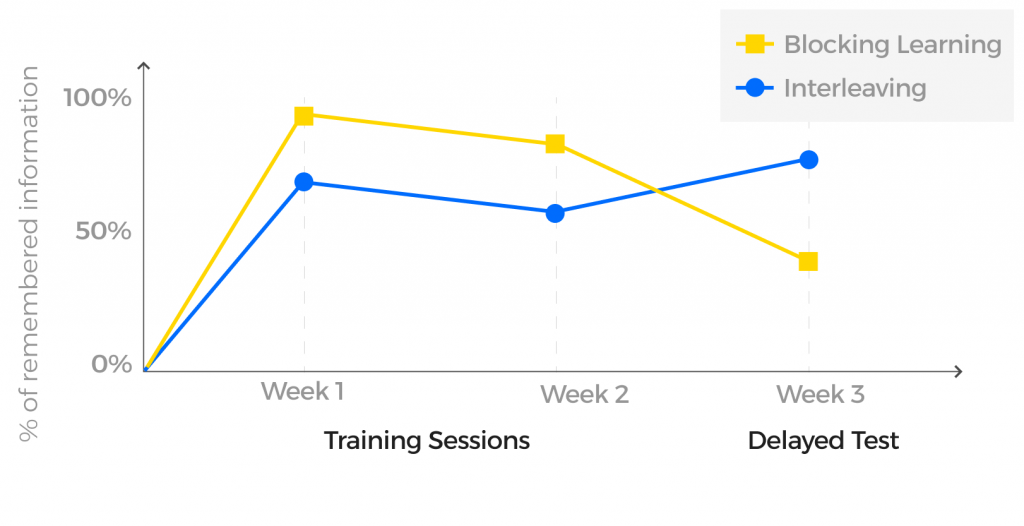Robert A. Bjork is a cognitive psychologist known for his research in the areas of learning, memory, and forgetting. His work has focused on understanding the factors that influence human memory and the conditions under which learning is most effective.
At the core of this theory is the distinction between learning and performance:
- Learning: durable changes in knowledge and memory that occur as a result of the learning process. It involves the establishment of long-term memory representations that support the retention and retrieval of information over time.
- Performance: observable and immediate execution of knowledge or skills. It is the ability to demonstrate what has been learned in a given context or situation.
The term “desirable difficulties” was coined in 1994. It is a theory of learning where challenges (or difficulties) are seen as the key to long-term learning. Introducing difficulties during the learning process can enhance long-term learning (i.e. changes in memory) even if they temporarily hinder immediate performance.
To be desirable, a difficulty must be something a learner can overcome through increased effort. Desirable difficulties include:
- Spacing practice: refers to the practice of distributing learning sessions over time rather than massing them together. This is understood similarly to spaced repetition and the forgetting curve.
- Varying the conditions of learning: learning in different environments, with varying background noise, or under different lighting conditions can make the learning experience more challenging but ultimately beneficial for long-term retention.
- Interleaving topics as opposed to teaching them in blocks: mixing different topics or skills during practice is better than focusing on one topic exclusively before moving on to the next.

- Generation and testing: generating an answer or solution versus being presented with the answer or solution. It involves actively recalling information from memory rather than passively reviewing it. When learners actively generate information (e.g., by answering questions or during tests), it enhances long-term retention. For language learning this means that reviewing materials and reading books over and over again is not very effective.
According to the theory of desirable difficulties, forgetting is actually good. You should expect to forget things and then recall them to improve. Desirable difficulties can initially slow learning down and seem counterproductive.
For language learning, this all means that:
- it will take time to learn, because what is effective slows you down;
- It will be difficult, and you should expect it to be difficult.
No pain, no gain.








